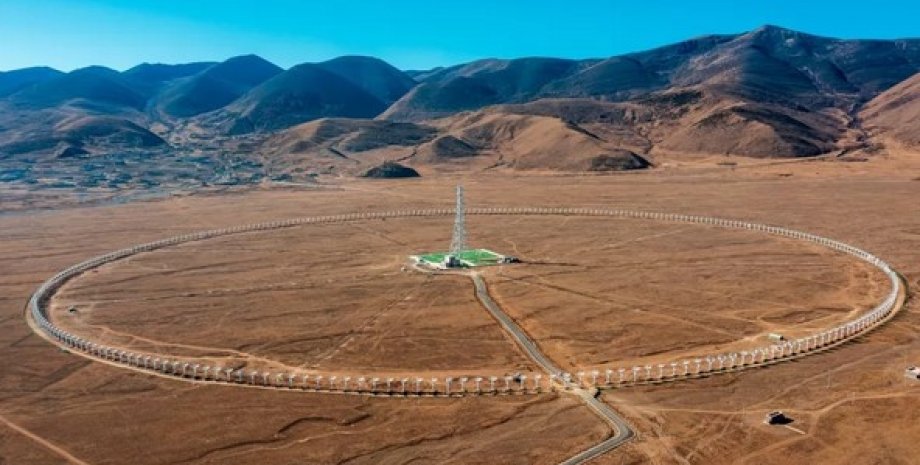
 By Natali Moss
By Natali Moss
Technology has appeared its Telegram channel. Subscribe not to miss the latest and most intrusive news from the world of science! A new observatory for observing the sun and the influence of our star in space weather was built in southwestern China. The Taochen solar radio telescope (DSRT) is a complex structure in the form of a circle, which consists of 313 antennials (diameter of every 6 m). The diameter of this circle is 3.
14 km, so the observatory created in China is the largest radio telescope. In the center of the circle is a calibration tower 100 m high. More than six months Chinese scientists have testing and setting up equipment, and the results showed that the radio telescope can be monitored with high accuracy of the sun activity. Therefore, it was decided to start a DSRT test operation.
With the help of a large number of plates, the telescope collects electromagnetic radiation of the sun, and then these data are combined and with the help of complex algorithms, scientists can get a picture of what is happening in our star. According to Chinese scientists, the new telescope has to carry out an analysis of the activity of our star in a continuous mode and to monitor the appearance of solar outbreaks and coronal emissions.
We remind that such eruptions in the sun lead to the appearance of geomagnetic storms on the ground. Therefore, scientists want to get more information about these phenomena. It was also known that DSRT will also be used to study pulsars (a special type of neutron stars), as well as to track fast radios (very strong energy emissions that come from distant galaxies). He has already written more about the construction of the DSRT telescope and his capabilities.










All rights reserved IN-Ukraine.info - 2022